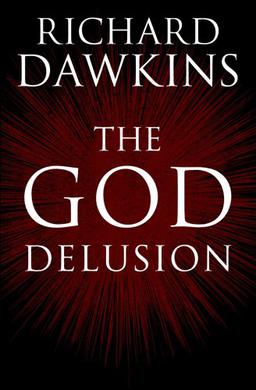Agnosticism is the view or belief that the existence of God, of the divine or the supernatural is unknown or unknowable. Another definition provided is the view that "human reason is incapable of providing sufficient rational grounds to justify either the belief that God exists or the belief that God does not exist."

The Invisible Pink Unicorn (IPU) is the goddess of a parody religion used to satirize theistic beliefs, taking the form of a unicorn that is paradoxically both invisible and pink. The IPU is a rhetorical illustration used by atheists and other religious skeptics as a contemporary version of Russell's teapot, sometimes mentioned in conjunction with the Flying Spaghetti Monster.

Negative atheism, also called weak atheism and soft atheism, is any type of atheism where a person does not believe in the existence of any deities but does not necessarily explicitly assert that there are none. Positive atheism, also called strong atheism and hard atheism, is the form of atheism that additionally asserts that no deities exist. Sometimes positive atheism goes by the term gnostic atheism to contrast with agnostic atheism, which is more correlated with weak atheism, and to stand opposite Gnostic theism on simple charts mapping different belief systems.
Nontheism or non-theism is a range of both religious and non-religious attitudes characterized by the absence of espoused belief in the existence of God or gods. Nontheism has generally been used to describe apathy or silence towards the subject of gods and differs from atheism, or active disbelief in any gods. It has been used as an umbrella term for summarizing various distinct and even mutually exclusive positions, such as agnosticism, ignosticism, ietsism, skepticism, pantheism, pandeism, transtheism, atheism, and apatheism. It is in use in the fields of Christian apologetics and general liberal theology.
The existence of God is a subject of debate in theology, philosophy of religion and popular culture. A wide variety of arguments for and against the existence of God or deities can be categorized as logical, empirical, metaphysical, subjective or scientific. In philosophical terms, the question of the existence of God or deities involves the disciplines of epistemology and ontology and the theory of value.
Apatheism is the attitude of apathy toward the existence or non-existence of God(s). It is more of an attitude rather than a belief, claim, or belief system. The term was coined by Robert Nash, theology professor at Mercer University, in 2001.

Antony Garrard Newton Flew was an English philosopher. Belonging to the analytic and evidentialist schools of thought, Flew worked on the philosophy of religion. During the course of his career he taught philosophy at the universities of Oxford, Aberdeen, Keele, and Reading in the United Kingdom, and at York University in Toronto, Canada.
Agnostic theism, agnostotheism, or agnostitheism is the philosophical view that encompasses both theism and agnosticism. An agnostic theist believes in the existence of one or more gods, but regards the basis of this proposition as unknown or inherently unknowable. The agnostic theist may also or alternatively be agnostic regarding the properties of the god or gods that they believe in.
Antitheism, also spelled anti-theism, is the philosophical position that theism should be opposed. The term has had a range of applications. In secular contexts, it typically refers to direct opposition to the belief in any deity.
The Atheism Tapes is a 2004 BBC television documentary series presented by Jonathan Miller. The material that makes up the series was originally filmed in 2003 for another, more general series, Atheism: A Rough History of Disbelief, but was too lengthy for inclusion. Instead, the BBC agreed to create The Atheism Tapes as a supplementary series of six programmes, each consisting of an extended interview with one contributor.

Russell's teapot is an analogy, formulated by the philosopher Bertrand Russell (1872–1970), to illustrate that the philosophic burden of proof lies upon a person making empirically unfalsifiable claims, rather than shifting the burden of disproof to others.
Criticism of atheism is criticism of the concepts, validity, or impact of atheism, including associated political and social implications. Criticisms include positions based on the history of science, philosophical and logical criticisms, findings in both the natural and social sciences, theistic apologetic arguments, arguments pertaining to ethics and morality, the effects of atheism on the individual, or the assumptions that underpin atheism.

The God Delusion is a 2006 book by British evolutionary biologist and ethologist Richard Dawkins. In The God Delusion, Dawkins contends that a supernatural creator, God, almost certainly does not exist, and that belief in a personal god qualifies as a delusion, which he defines as a persistent false belief held in the face of strong contradictory evidence. He is sympathetic to Robert Pirsig's statement in Lila (1991) that "when one person suffers from a delusion it is called insanity. When many people suffer from a delusion it is called religion." In the book, Dawkins explores the relationship between religion and morality, providing examples that discuss the possibility of morality existing independently of religion and suggesting alternative explanations for the origins of both religion and morality.

Implicit atheism and explicit atheism are types of atheism. In George H. Smith's Atheism: The Case Against God, "implicit atheism" is defined as "the absence of theistic belief without a conscious rejection of it", while "explicit atheism" is "the absence of theistic belief due to a conscious rejection of it". Explicit atheists have considered the idea of deities and have rejected belief that any exist. Implicit atheists, though they do not themselves maintain a belief in a god or gods, have not rejected the notion or have not considered it further.
The Ultimate Boeing 747 gambit is a counter-argument to modern versions of the argument from design for the existence of God. It was introduced by Richard Dawkins in chapter 4 of his 2006 book The God Delusion, "Why there almost certainly is no God".

The Dawkins Delusion? Atheist Fundamentalism and the Denial of the Divine is a book by the theologian Alister McGrath and the psychologist Joanna Collicutt McGrath. It is written from a Christian perspective as a response to arguments put forth in The God Delusion by Richard Dawkins. The work was published in the United Kingdom in February 2007 by the Society for Promoting Christian Knowledge and in the United States in July 2007.
The following outline is provided as an overview of and topical guide to atheism:
Atheism, in the broadest sense, is an absence of belief in the existence of deities. Less broadly, atheism is a rejection of the belief that any deities exist. In an even narrower sense, atheism is specifically the position that there are no deities. Atheism is contrasted with theism, which in its most general form is the belief that at least one deity exists.
Agnostic atheism or atheistic agnosticism is a philosophical position that encompasses both atheism and agnosticism. Agnostic atheists are atheistic because they do not hold a belief in the existence of any deity and are agnostic because they claim that the existence of a divine entity or entities is either unknowable in principle or currently unknown in fact.
Skeptical theism is the view that people should remain skeptical of their ability to discern whether their perceptions about evil can be considered good evidence against the existence of the orthodox Christian God. The central thesis of skeptical theism is that it would not be surprising for an infinitely intelligent and knowledgeable being's reasons for permitting evils to be beyond human comprehension. That is, what may seem like pointless evils may be necessary for a greater good or to prevent equal or even greater evils. This central thesis may be argued from a theistic perspective, but is also argued to defend positions of agnosticism.






